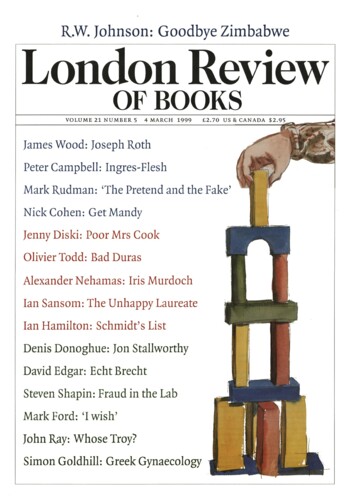Whip, Spur and Lash: The Epic of Gilgamesh
John Ray, 2 September 1999
Mesopotamia comes across as a sad place. Almanacs of the Middle East will tell you that it has its fair share of sunshine, but it is easier to imagine it under a leaden sky. Mesopotamia – Chaldaea, Sumer, Assyria, Babylonia, Iraq, or any other of its many names – consists of a patchy flood plain, without much cohesion and with wide-open frontiers on two of its sides. To the south is desert and ocean, while the east is overshadowed by the Iranian plateau, where enemies can gather in numbers. The rivers of this plain are unpredictable, especially the Tigris, and they can do damage without warning. The city-states which grew up there – the first city-states in history – spent much of their time eyeing each other nervously, and preparing for the next war of retribution. If you were lucky, and got hold of power, you held onto it, and distributed it among your friends and relatives. This made sense, because the gods of Mesopotamia did the same. Unlike their counterparts in ancient Egypt, they were not kind. They created human beings only because they wanted someone to do the dirty jobs for them, and they were not greatly interested in human beings’ fate. There was not much justice about the way things were, and the gods were not intending to add to it. But they were not to be ignored, in case they became offended and took away what little you had.’



